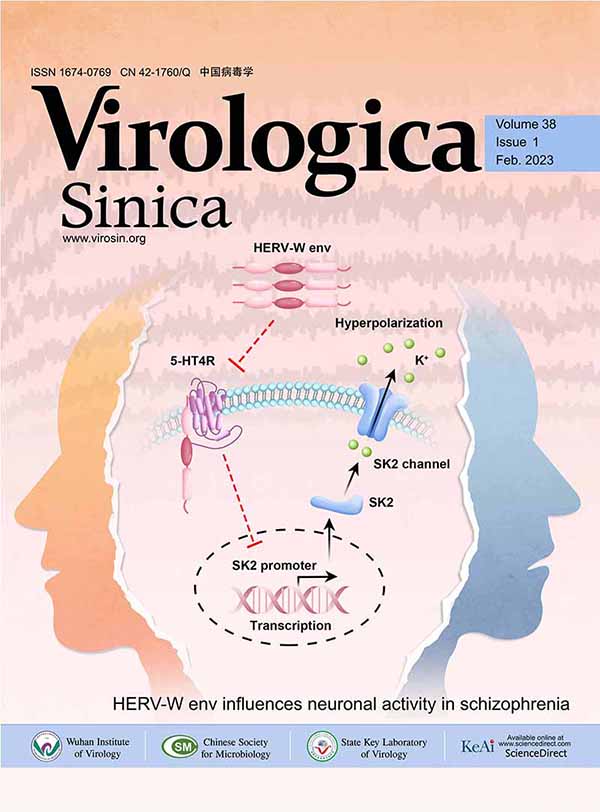FENG Zong—di, CHEN Xin—wen, Just M .Vlak, HU Zhi—hong.Sequence Analysis of the Xba I-I Region of the Single Nucleocapsid Nllcle0polyhedr0Virus of Helicoverpa armigera .VIROLOGICA SINICA, 2002, 17(2): 125-131.
Citation:
FENG Zong—di, CHEN Xin—wen, Just M .Vlak, HU Zhi—hong.
Sequence Analysis of the Xba I-I Region of the Single Nucleocapsid Nllcle0polyhedr0Virus of Helicoverpa armigera .VIROLOGICA SINICA, 2002, 17(2)
: 125-131.
Sequence Analysis of the Xba I-I Region of the Single Nucleocapsid Nllcle0polyhedr0Virus of Helicoverpa armigera
-
1.
The Xba I-I fragment located at 18.4~22.8 m.u. of the Helicoverpa armigera single-nucleocapsid nucleopolyhedrovirus genome was sequenced. The fragment contains eight complete ORFs, including putative ubiquitin, 39K/pp31, lef-11, Lsel25, orf507, orf1080, Ac34,Ac38 and a partial orf which potentially encodes C-terminal of P47. orf507 and orf1080 are two putative unique genes of HaSNPV, both contain an early-expression gene motif CAGT and a TATA box in upstream sequences. The ubiquitin gene of HaSNPV shows high identity with baculoviruses and human or yeast ubiquitins. The 39K/pp31 promotor of HaSNPV does not contain late promotor motifs, which exists in other so far identified baculoviral homologues, suggesting it probably has different transcriptional pattern.
-
Available online:
05 April 2002
-
Abstract
The Xba I-I fragment located at 18.4~22.8 m.u. of the Helicoverpa armigera single-nucleocapsid nucleopolyhedrovirus genome was sequenced. The fragment contains eight complete ORFs, including putative ubiquitin, 39K/pp31, lef-11, Lsel25, orf507, orf1080, Ac34,Ac38 and a partial orf which potentially encodes C-terminal of P47. orf507 and orf1080 are two putative unique genes of HaSNPV, both contain an early-expression gene motif CAGT and a TATA box in upstream sequences. The ubiquitin gene of HaSNPV shows high identity with baculoviruses and human or yeast ubiquitins. The 39K/pp31 promotor of HaSNPV does not contain late promotor motifs, which exists in other so far identified baculoviral homologues, suggesting it probably has different transcriptional pattern.
-

-
-
References
-
Proportional views

-













 DownLoad:
DownLoad: